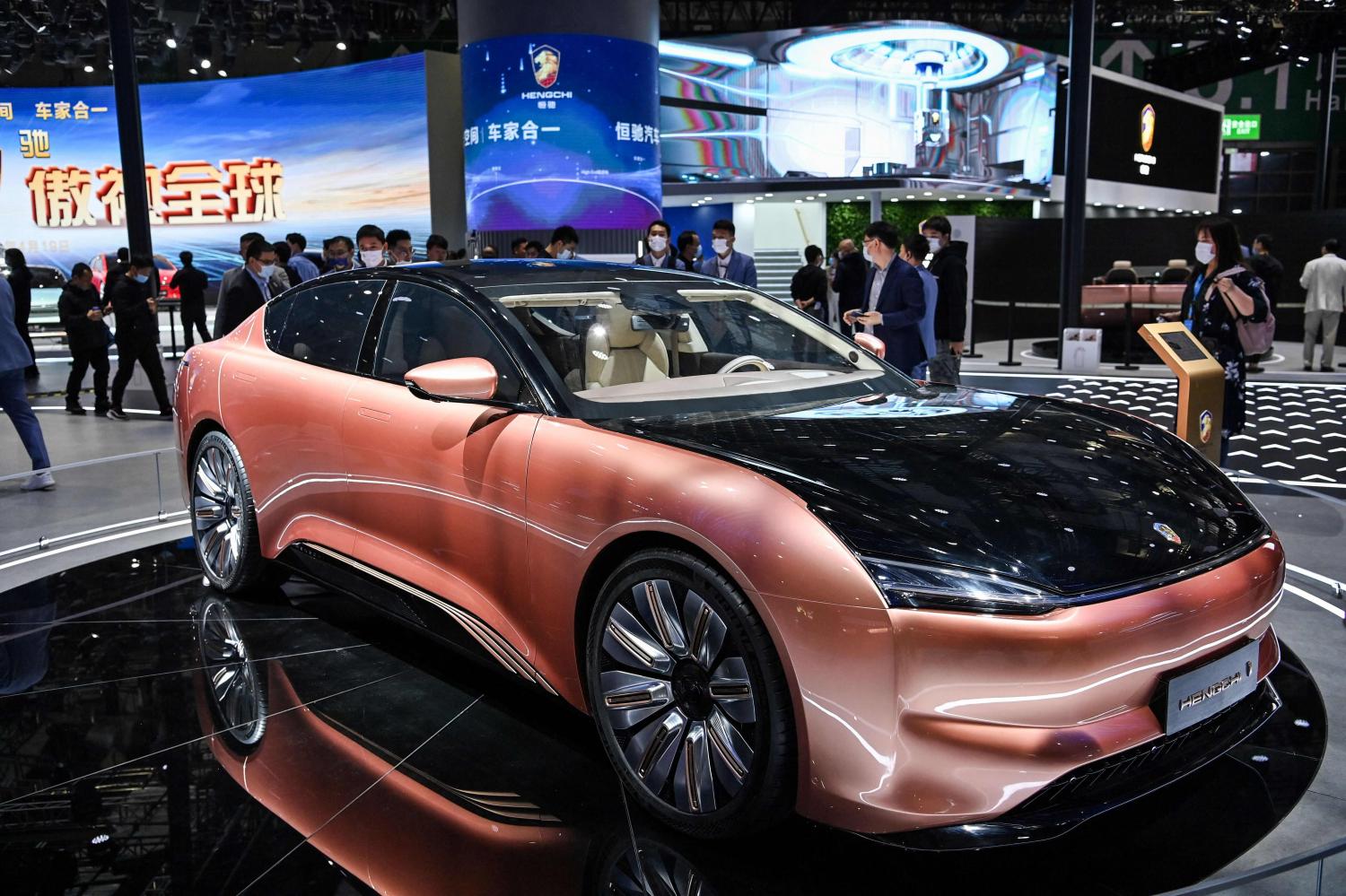
SHANGHAI: China Evergrande New Energy Vehicle Group Ltd's expansive pop-up showroom sits at the heart of Shanghai's National Exhibition and Convention Center. With nine models on display, it's hard to miss.
The electric car upstart has one of the biggest booths at the 2021 Shanghai Auto Show, opposite storied German automaker BMW AG. Yet its bold presence belies an uncomfortable truth -- Evergrande hasn't sold a single car under its own brand.
China's largest property developer has an array of investments outside of real estate, from soccer clubs to retirement villages. But it's the recent entry into electric cars that's captured investors' imaginations.
Shareholders have pushed Evergrande NEV's Hong Kong-listed stock up more than 1,000% over the past 12 months, allowing it to raise billions of dollars in fresh capital.
It now has a market value of $87 billion, greater than Ford Motor Co and General Motors Co.
Such exuberance over an automaker that has repeatedly pushed back forecasts for when it will mass produce a car is emblematic of the froth that has been building in EVs over the past year, with investors plowing money into a rally that briefly made Elon Musk the world's richest person and has some concerned about a bubble.
Perhaps nowhere is that more evident than in China, home to the world's biggest market for new energy cars, where a mind-boggling 400 EV manufacturers now jostle for consumers' attention, led by a cabal of startups valued more than established auto players but which have yet to turn a profit.
Evergrande NEV was a relatively late entrant to that scene.
In March 2019, Hui Ka Yan, Evergrande's chairman and one of China's richest men, vowed to take on Musk and become the world's biggest maker of EVs in three to five years.
Despite his lofty ambitions and Evergrande NEV's rich valuation, Hui has repeatedly pushed back car-production targets.
The tycoon's coterie of rich friends, among others, have stumped up billions, but making cars -- electric or otherwise -- is hard, and hugely capital intensive.
Speaking on an earnings call in late March after Evergrande NEV's full-year loss for 2020 widened by a yawning 67%, Hui said the company planned to begin trial production at the end of this year, delayed from an original timeline of last September.
Deliveries aren't expected to start until some time in 2022. Expectations for annual production capacity of 500,000 to one million EVs by March 2022 were also pushed back until 2025.
Still, the company issued a buoyant new forecast: five million cars a year by 2035. For comparison, global giant Volkswagen AG delivered 3.85 million units in China in 2020.
It's not just Evergrande's delayed production schedule that's raising eyebrows. A closer look under the company's hood reveals practices that have industry veterans scratching their heads: from making selling apartments part of car executives' KPIs, to attempting a model line-up that would be ambitious for even the most established automaker.
"It's a weird company," said Bill Russo, the founder and chief executive of advisory firm Automobility Ltd in Shanghai.
"They've poured a lot of money in that hasn't really returned anything, plus they're entering an industry in which they have very limited understanding. And I'm not sure they've got the technological edge of Nio or Xpeng," he said, referring to the New York-listed Chinese EV makers already deploying intelligent features in their cars, like laser-based navigation.
A closer look at Evergrande NEV's operations reveals the extent of its unorthodox approach.
While it's established three production bases -- in Guangzhou, Tianjin in China's north, and Shanghai -- the company doesn't have a general car assembly line up and running.
Equipment and machinery is still being adjusted, according to people who have seen inside the factories but don't want to be identified discussing confidential matters.
In a response to questions from Bloomberg, Evergrande NEV said it was preparing machinery for trial production, and would be able to make "one car a minute" once full production is reached.
The company is targeting mass production and delivery next year of four models -- the Hengchi 5 and 6; the luxe Hengchi 1 (which will go up against Tesla's Model S); and the Hengchi 3, according to people familiar with the matter.
The company has told investors it aims to deliver 100,000 cars in 2022, roughly the number of units Nio Inc, Xpeng Inc and Li Auto Inc, the other US-listed Chinese EV contender, delivered last year, combined.
Meanwhile, the ambitious targets have Evergrande NEV turning to outsourcing and skipping procedures seen as normal practice in the industry, people with knowledge of the situation say.
While it's hiring aggressively and recently scored Daniel Kirchert, a former BMW executive who co-founded EV startup Byton Ltd, the firm has contracted most of the design and R&D of its cars to overseas suppliers, some of the people said.
Contracting out the majority of design and engineering work is an unusual approach for a company wanting to achieve such scale.
"Glossing over those steps is unusual,'' said Zhong Shi, a former automotive project manager turned independent analyst.
"There's a standard engineering process of product development, validation and verification, which includes several laboratory and road tests in China and everywhere else,'' he said. "It's hard to compress that to shorter than three years."